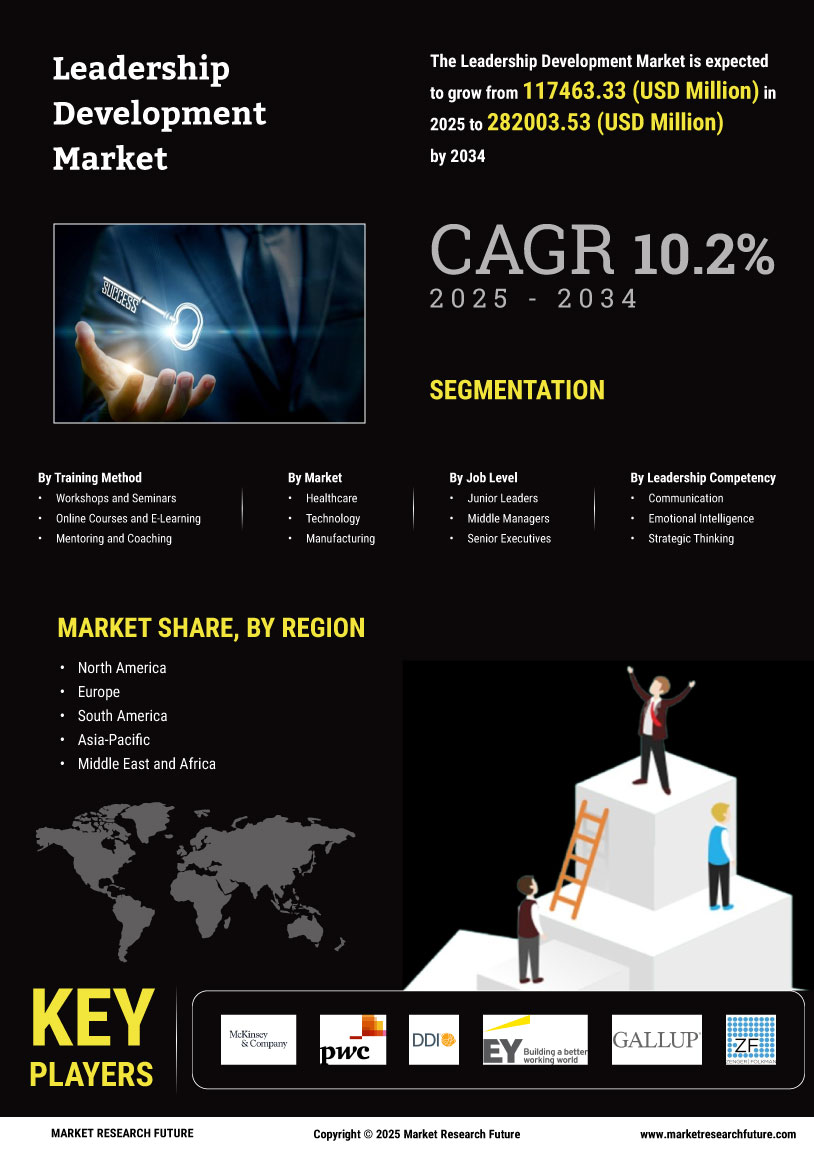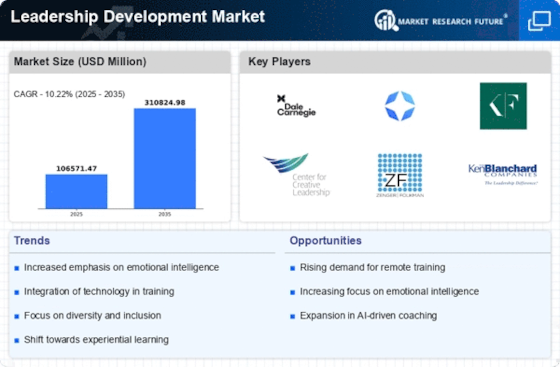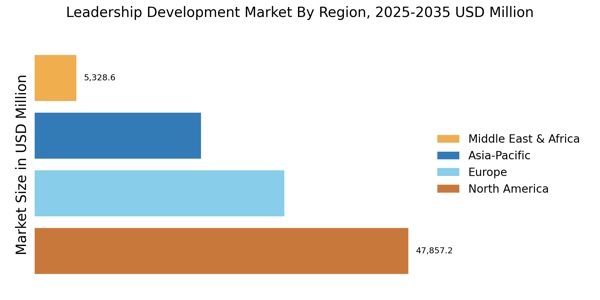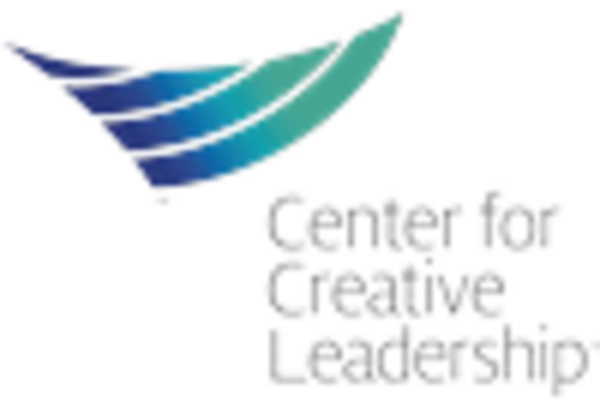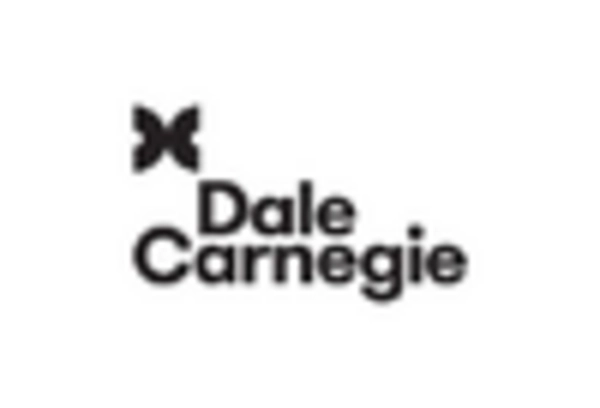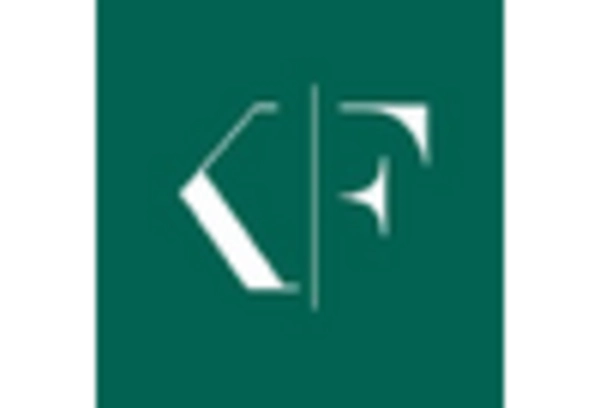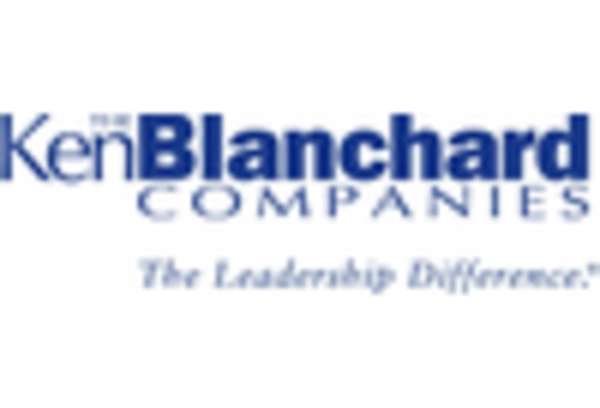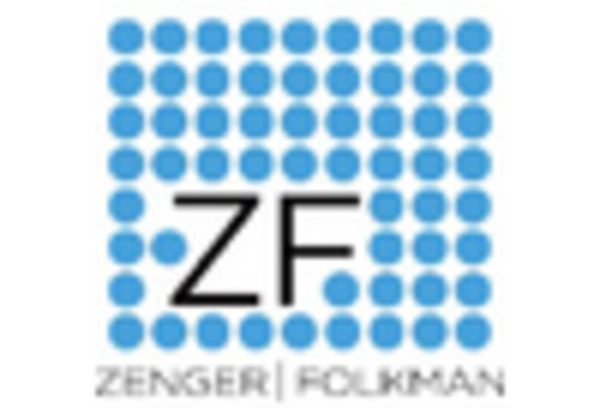Increased Demand for Leadership Skills
The Leadership Development Market is experiencing a notable surge in demand for leadership skills across various sectors. Organizations are increasingly recognizing the necessity of effective leadership in driving performance and fostering innovation. According to recent data, approximately 70% of organizations report that leadership development is a top priority for their strategic initiatives. This heightened focus is likely driven by the need to navigate complex business environments and adapt to rapid changes. As a result, companies are investing significantly in leadership training programs, which are projected to grow at a compound annual growth rate of around 10% over the next five years. This trend indicates a robust market for leadership development solutions, as organizations seek to cultivate a new generation of leaders equipped to meet contemporary challenges.
Shift Towards Remote Leadership Training
The Leadership Development Market is witnessing a transformative shift towards remote leadership training solutions. With the advent of advanced digital platforms, organizations are increasingly adopting virtual training methods to develop their leaders. This transition appears to be driven by the need for flexibility and accessibility in training programs. Data suggests that nearly 60% of companies have implemented online leadership training initiatives, reflecting a significant change in how leadership skills are imparted. Furthermore, the remote training segment is expected to account for a substantial portion of the overall leadership development market, potentially reaching a valuation of several billion dollars in the coming years. This shift not only enhances the reach of training programs but also allows for a more diverse range of learning experiences, catering to the needs of a geographically dispersed workforce.
Focus on Leadership Agility and Adaptability
The Leadership Development Market is increasingly focusing on leadership agility and adaptability as critical competencies for modern leaders. In an era marked by rapid change and uncertainty, organizations are prioritizing the development of leaders who can navigate complex challenges and pivot strategies effectively. Recent findings suggest that organizations emphasizing agility in their leadership development programs experience a 30% improvement in overall performance metrics. This focus on adaptability is likely to shape the future of leadership training, as organizations seek to cultivate leaders who can respond swiftly to evolving market conditions. Consequently, the demand for leadership development solutions that emphasize agility and resilience is expected to grow, reflecting a broader trend towards preparing leaders for an unpredictable business landscape.
Integration of Coaching and Mentoring Programs
The Leadership Development Market is increasingly integrating coaching and mentoring programs into leadership training initiatives. This approach appears to be gaining traction as organizations recognize the value of personalized guidance in developing effective leaders. Data indicates that organizations utilizing coaching and mentoring report a 50% higher success rate in leadership development compared to traditional training methods. This trend suggests that tailored support mechanisms are essential for nurturing leadership potential. As a result, the market for coaching and mentoring solutions is anticipated to expand significantly, with many organizations seeking to implement structured programs that align with their leadership development goals. This integration not only enhances the effectiveness of training but also fosters a supportive environment conducive to leadership growth.
Emphasis on Continuous Learning and Development
The Leadership Development Market is increasingly characterized by an emphasis on continuous learning and development. Organizations are recognizing that leadership skills must evolve in tandem with changing market dynamics and employee expectations. This realization has led to the implementation of ongoing training programs that focus on skill enhancement and personal growth. Recent statistics indicate that companies investing in continuous leadership development are likely to see a 20% increase in employee engagement and retention rates. This trend underscores the importance of fostering a culture of learning within organizations, as it not only enhances leadership capabilities but also contributes to overall organizational success. As such, the demand for innovative leadership development solutions that support continuous learning is expected to rise, further propelling the growth of the leadership development market.
